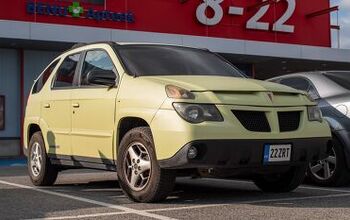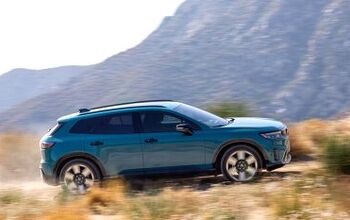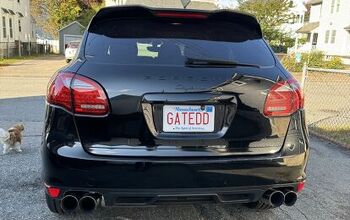Hyundai Recalling LG Batteries, Who's to Blame?

Hyundai will be recalling 82,000 electric vehicles sold around the world due to a presumed fire risk and its getting a little ugly, though that’s nothing new for the industry. Reports of the brand’s Kona Electric going up in flames (often while charging) started springing up in 2019, causing the manufacturer to call them back for a software update that was supposed to remedy the issue. But South Korean officials decided more needed to be done after one of the fixed vehicles caught fire in January. An investigation was launched and now Hyundai is on the hook for a 1 trillion won ($900 million USD) recall — including the nearly 40 billion won was spent on the initial software solution.
But how much of the blame does Hyundai really deserve when other manufacturers are having similar issues with their electric cars? Couldn’t the supplier be somewhat responsible? Absolutely not, explains battery supplier LG Chem.
There could be a smack of that going on here, too. LG has made it abundantly clear that Hyundai’s battery problems are the result of it failing to properly apply its suggestions when setting up vehicles’ charging and battery management systems. While investigators from South Korea’s transport ministry have reported seeing problems (defects) with cells manufactured at LG Energy’s China factory, the supplier seems to be avoiding much of the blame.
It maintains that this is a Hyundai problem and the automaker hasn’t done much to defend itself. The skeptic inside is screaming that this has something to do with South Korea not wanting to kill what’s about to become a golden goose. Battery demand is up and governments around the world are doing their utmost to pitch it up even higher, so there’s little for the country to gain by making two of its largest conglomerates look bad when one will suffice. We can only speculate on this, however, as the transport ministry’s investigation is ongoing.
According to Reuters, Hyundai will be footing the entire 1 trillion won bill. But it has since clarified that there have been discussions on sharing the financial impact with LG. But this doesn’t appear to be common knowledge or finalized.
The recall applies to nearly 76,000 Kona EVs built between 2018 and 2020, a smattering of Ioniq EVs and a few busses have also been included. Hyundai is recommending all owners limit battery charging to 90 percent of the total capacity until after the battery has been replaced.
[Image: Hyundai]

A staunch consumer advocate tracking industry trends and regulation. Before joining TTAC, Matt spent a decade working for marketing and research firms based in NYC. Clients included several of the world’s largest automakers, global tire brands, and aftermarket part suppliers. Dissatisfied with the corporate world and resentful of having to wear suits everyday, he pivoted to writing about cars. Since then, that man has become an ardent supporter of the right-to-repair movement, been interviewed on the auto industry by national radio broadcasts, driven more rental cars than anyone ever should, participated in amateur rallying events, and received the requisite minimum training as sanctioned by the SCCA. Handy with a wrench, Matt grew up surrounded by Detroit auto workers and managed to get a pizza delivery job before he was legally eligible. He later found himself driving box trucks through Manhattan, guaranteeing future sympathy for actual truckers. He continues to conduct research pertaining to the automotive sector as an independent contractor and has since moved back to his native Michigan, closer to where the cars are born. A contrarian, Matt claims to prefer understeer — stating that front and all-wheel drive vehicles cater best to his driving style.
More by Matt Posky
Latest Car Reviews
Read moreLatest Product Reviews
Read moreRecent Comments
- Carguy949 You point out that Rivian and Tesla lack hybrids to “bring home the bacon”, but I would clarify that Tesla currently makes a profit while Rivian doesn’t.
- Cprescott I'm sure this won't matter to the millions of deceived Honduh owners who think the company that once prided itself on quality has somehow slipped in the real world. Same for Toyoduhs. Resting on our Laurel's - Oh, what a feeling!
- Jrhurren I had this happen numerous times with my former Accord. It usually occurred when on a slow right curve in the road. Somehow the system would get confused and think the opposite lane (oncoming traffic) was an impending head-on collision.
- Cprescott The Ford Shamaro is ugly, thick bodied, and a Mustang pretender.
- Analoggrotto Speaking of mud, does anyone here enjoy naked mud wrestling?

































Comments
Join the conversation
"a smattering of Ioniq EVs" To quote Dick Scobee: "Uh-oh". I have been suspicious about the absence of the Ioniq EV from articles about this. Fortunately, I nearly always charge mine to ~80%, and only go to 100% if I'm about to drive it some distance. It has performed quite well given its small capacity. Checking separately, I think this recall covers my car. If I get a new battery, hopefully it doesn't come with any performance compromises. Heck, maybe I'll even keep the thing once the lease is up.
Back when I was designing explosion-proof equipment that went into hazardous locations, I had a manager who stated that all we needed to do was use all UL- or CE-listed parts and we'd be OK. To that ridiculous comment, I replied "you could build a bomb out of UL-listed parts." With rechargeable batteries, you have the cells and the packs they go into. The cells are designed with simple protection devices inside them to guard against over pressure or over temperature conditions. Activation of these devices (like a pressure disk) will render the cell useless, but it won't cause a fire unless other aggravating events are present. The pack design is meant to provide mechanical packaging, charging capability, overcharge protection, cell balancing, cooling, heating, ventilation, and crash protection. There should be a distinct line of ownership between the cell mfr and the car mfr, even if they collaborate on the pack design. Battery knockoffs - for cell phones, laptops, etc - use someone else's cell and/or pack design, and that's where corners can be cut on safety or performance. We've all used them, but there is a bit more risk in doing so. LG Chem may very well be correct here. They provide a product that can go badly wrong if misused - think of a gun and the gun owner. On the other hand, if Hyundai can prove that the LG Chem cell can't withstand conditions they mutually agreed upon, then LG Chem has a dog in this fight. As the pack designer, I would normally blame Hyundai for this issue. But the fact that Bolts have burned up with LG Chem cells gives me pause. I hope Hyundai truly understands the root cause. It's exceptionally difficult to root cause a problem that occurs once or twice in 80k units, especially when the evidence is burned up. The political/business implications of this are pretty big for both parties, so we may never know what backroom fights are taking place.